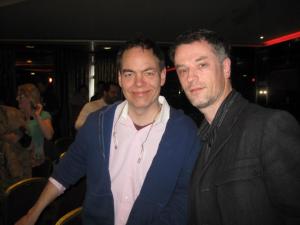For many years we’ve been assured by the cryptocurrency-concerned media that widespread Bitcoin adoption is just around the corner. Yet as each year passes it never seems to get any closer.
There are significant challenges which need to be overcome in order for widespread adoption to happen:
- Complexity: Bitcoin was created by computer scientists and despite being more than 10 years old the technology that propagates Bitcoin is still too complicated and difficult to use for the common man.
- Security: Likewise, complicated solutions are required in order to safely hold Bitcoin – once Bitcoin has been stolen, lost or sent to the wrong address it’s virtually impossible to retrieve. For a novice Bitcoin user to hold his or her Bitcoin in ‘cold storage’ or to create a ‘paper-wallet’ is very complicated and time consuming, as well as being highly inconvenient when the person wants to transfer or spend the Bitcoin.
- Volatility: At time of writing (26th October 2019), Bitcoin has appreciated approximately 28% in the past 24 hours but it also has the potential to depreciate by a similar percentage or more (without warning) and therefore most normal consumers/businesses aren’t willing to accept, hold or spend Bitcoin in the regular economy.
- Regulation: Different countries and states have classified Bitcoin in numerous ways – as a currency, a commodity, a digital asset and even as a collector’s item. This uncertainty in regard to how it is classified and also as to how it is taxed is a significant barrier to entry for many people.
- Illicit activities: Despite many other currencies being used for criminal activity Bitcoin has received a lot of negative press in this regard and that’s unlikely to change as long as it remains a pseudonymous network – where users can remain anonymous to a certain (but reducing) degree but all transactions can be viewed on a transparent, public digital ledger. Exchanges and wallet providers (e.g. Coinbase) are independent companies and therefore they are a centralized point of failure (which negates the whole purpose of using Bitcoin for hardcore users) where Bitcoin users can lose all their funds in the event of the exchange disappearing overnight (or being hacked) or a wallet provider going bankrupt.
To be honest, I cannot envisage any scenario where Bitcoin will become a global network for retail payments (apart from the fact that its use will probably increase slightly, year on year for those people who are willing to put up with its foibles).
To address the bullet points above, it is true that over time we would expect wallets and exchanges to become more user friendly with the technology that they offer to Bitcoin users and indeed this might extend to security options although the fact remains that once a Bitcoin (or part of) is transferred then it cannot be recovered – and it’s blatantly obvious that some kind of escrow system won’t work for small payments at the retail level.
Furthermore, the volatility of Bitcoin CANNOT be stopped, its value will ALWAYS fluctuate in response to supply and demand on the world’s Bitcoin exchanges and open markets.
Many governments are not going to allow Bitcoin to replace their own currency and some will ban it outright over time. It will always be associated (however unfairly) with illicit activities because of the simple fact that it is extremely useful for such operations.
In conclusion, there will always be risk in holding and using Bitcoin because of its decentralized nature (the main attraction for most of its serious devotees) therefore it’ is highly debatable as to whether Bitcoin will ever become more than a ‘niche’ currency in comparison to sovereign currencies of national states.



















